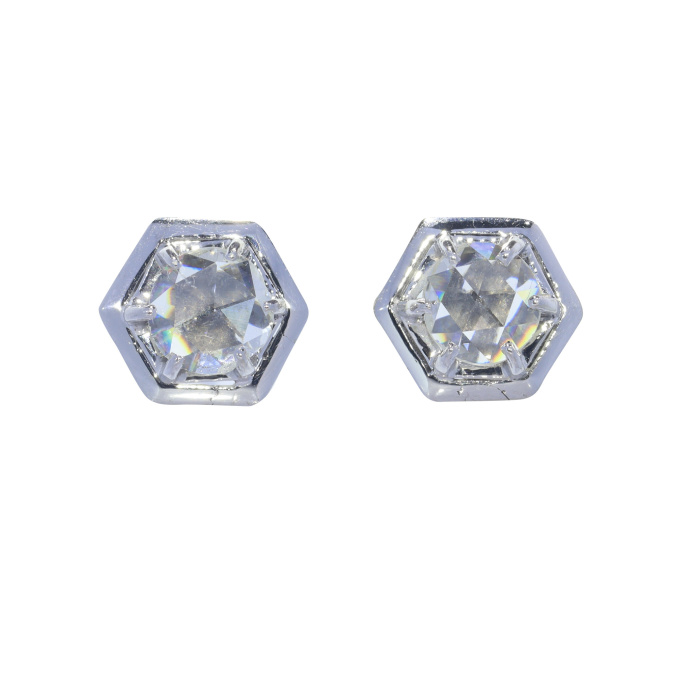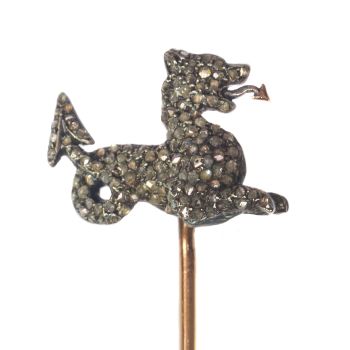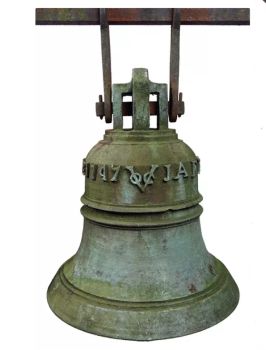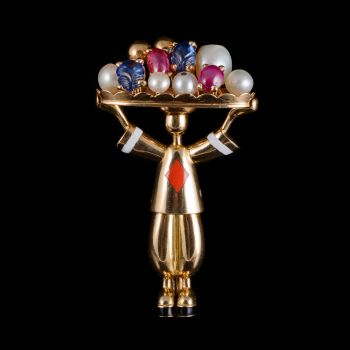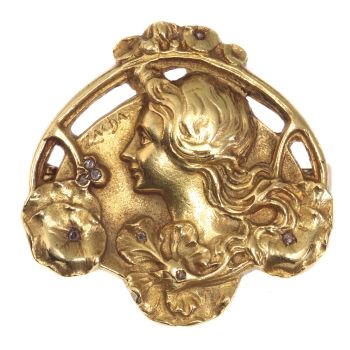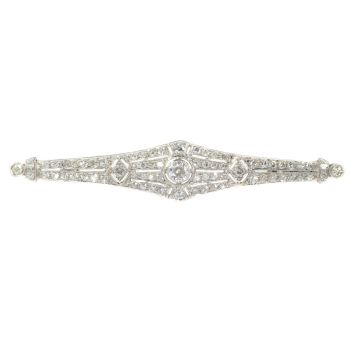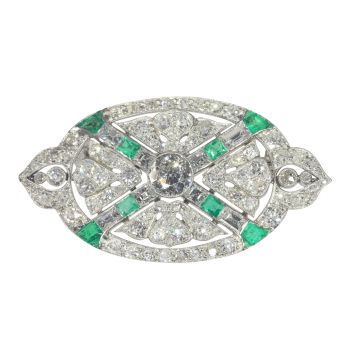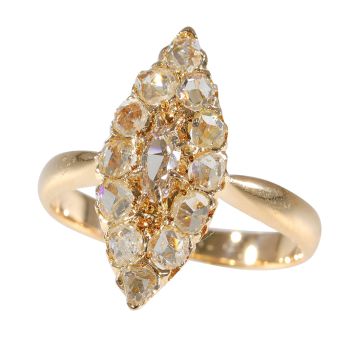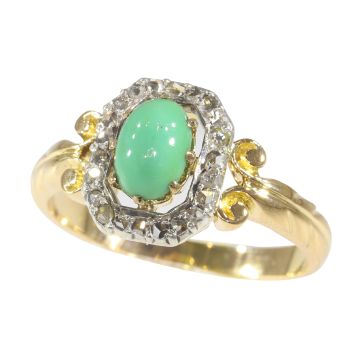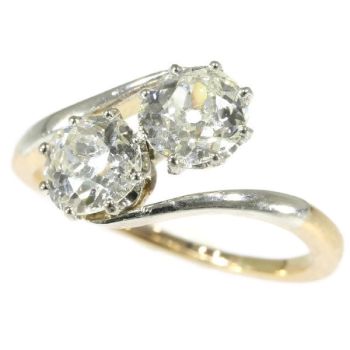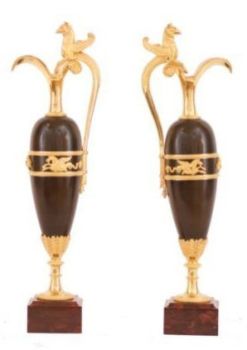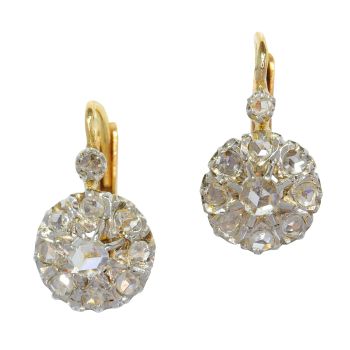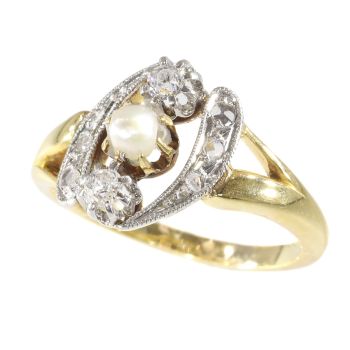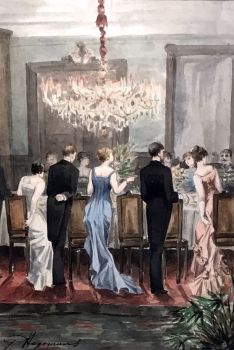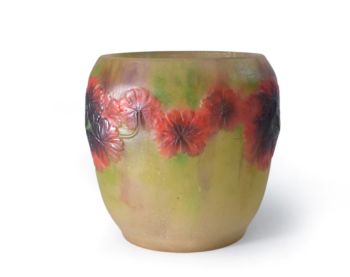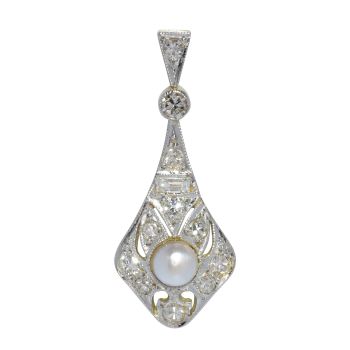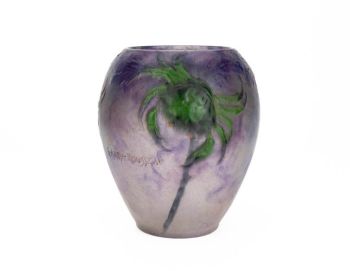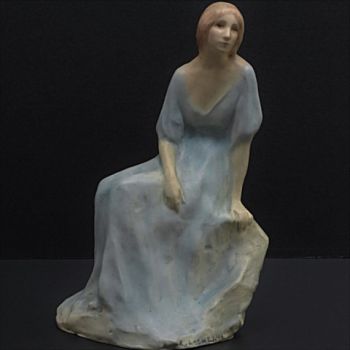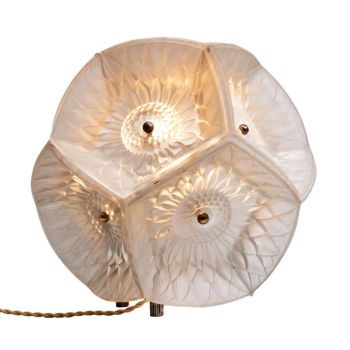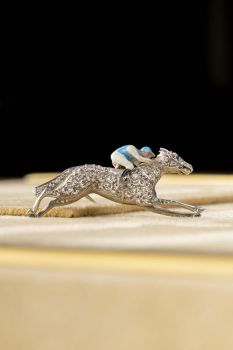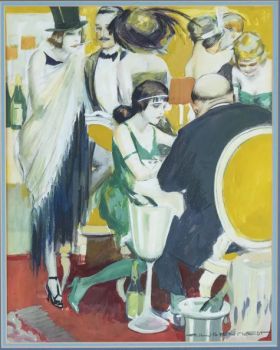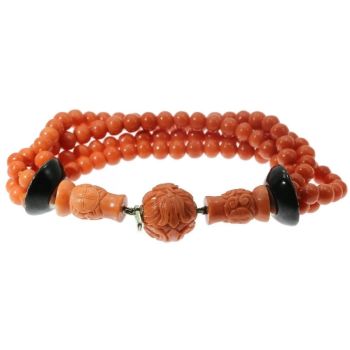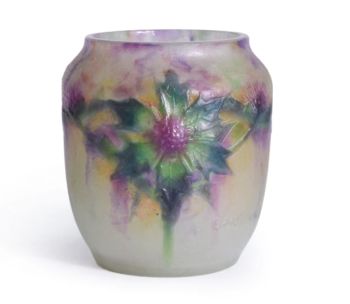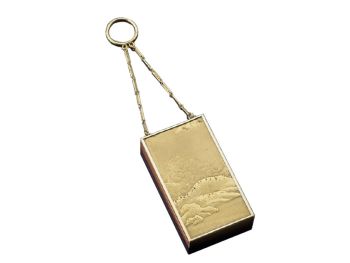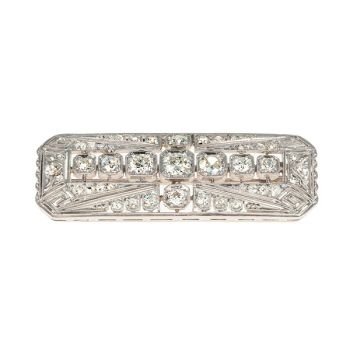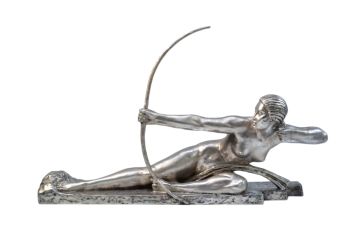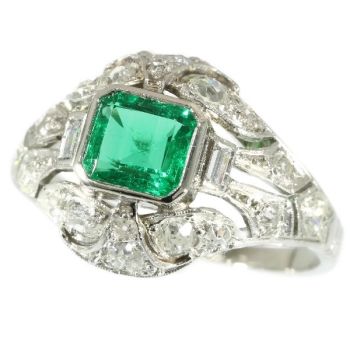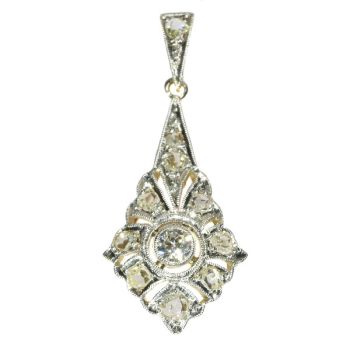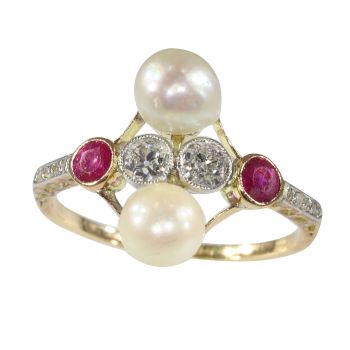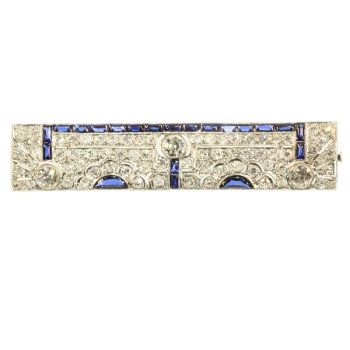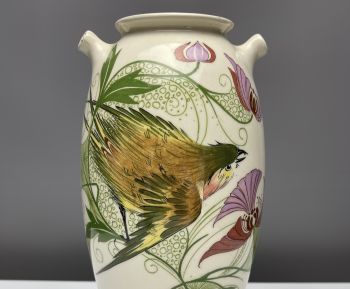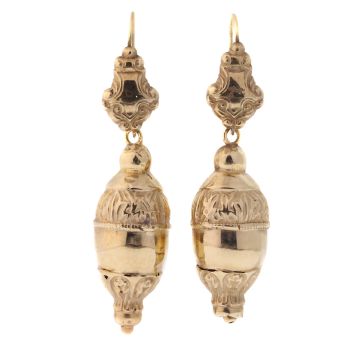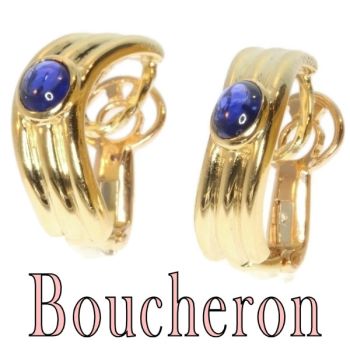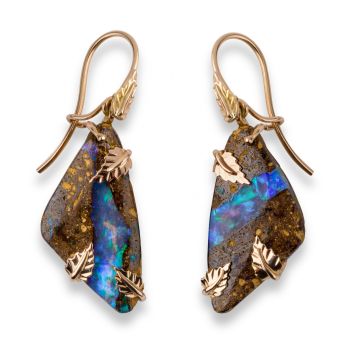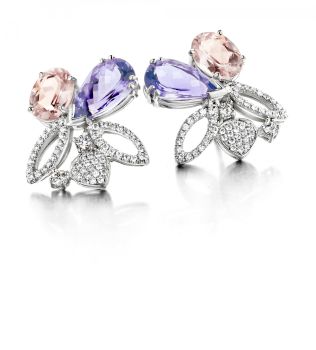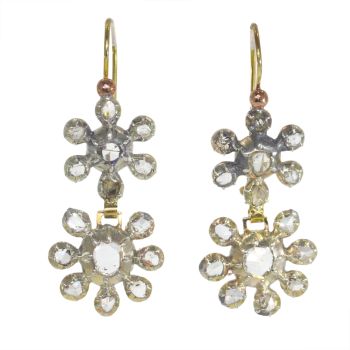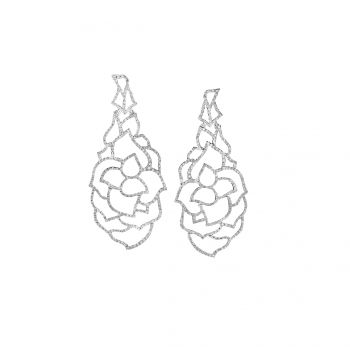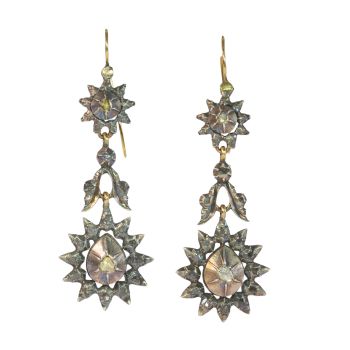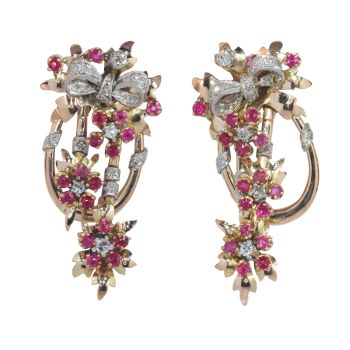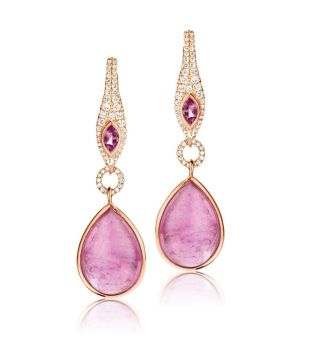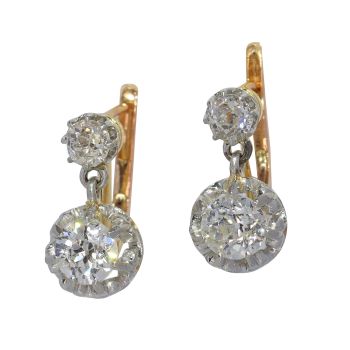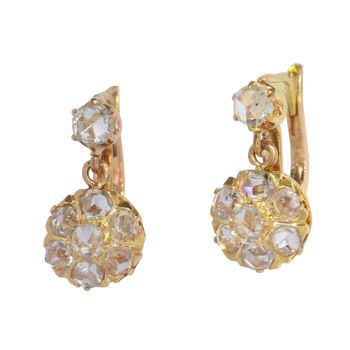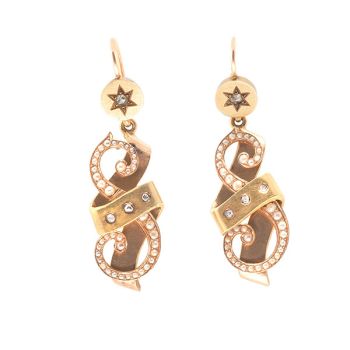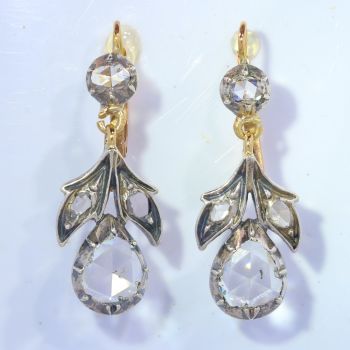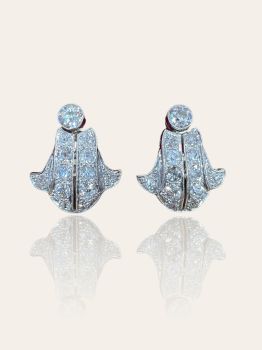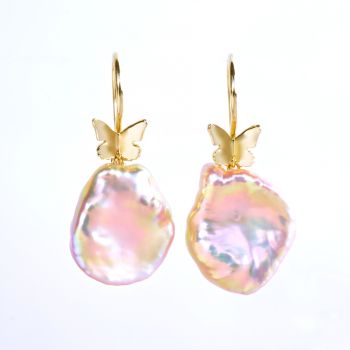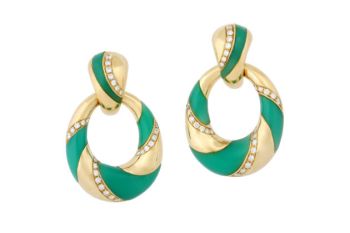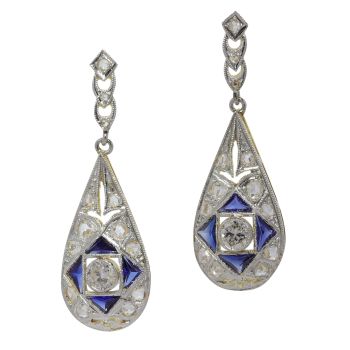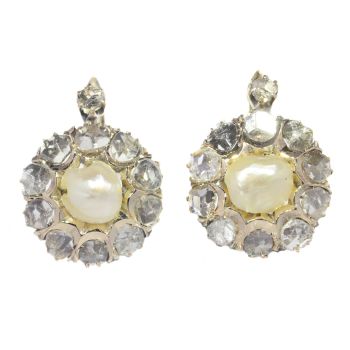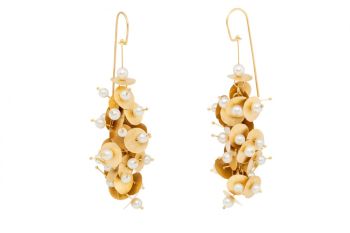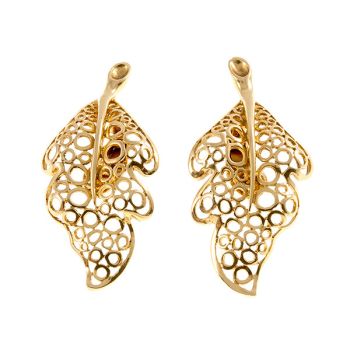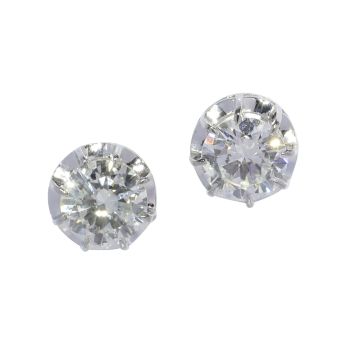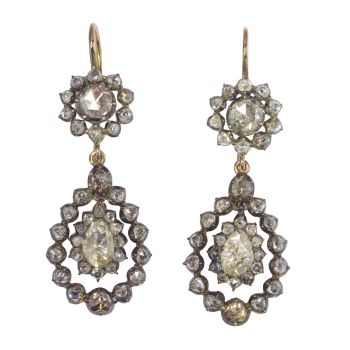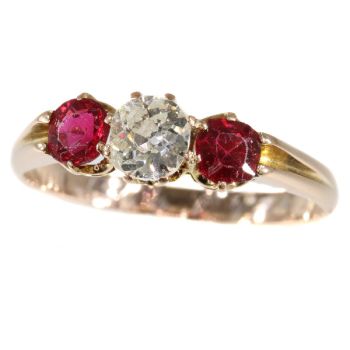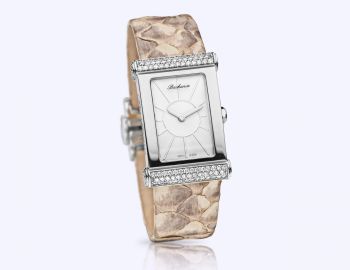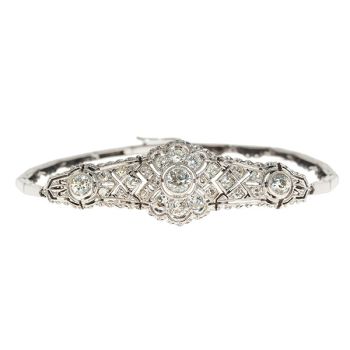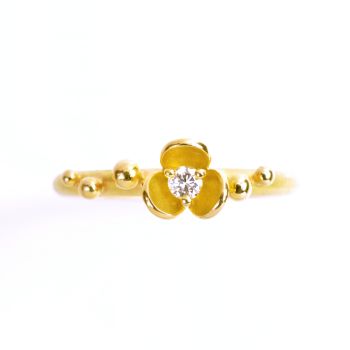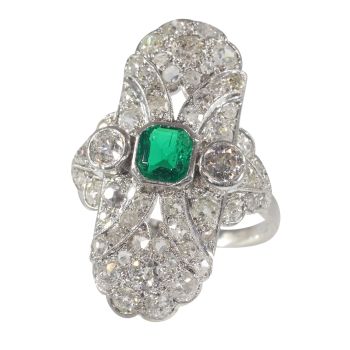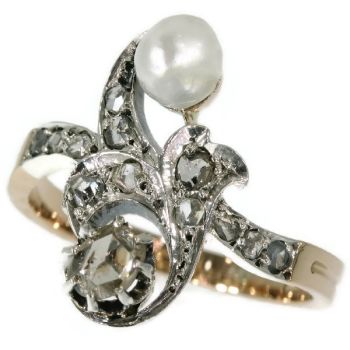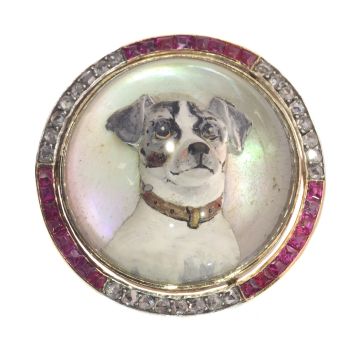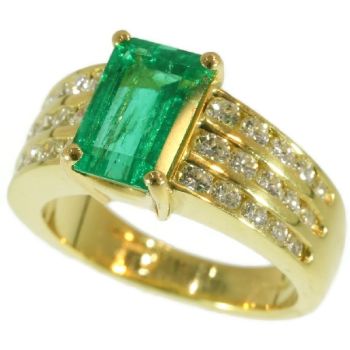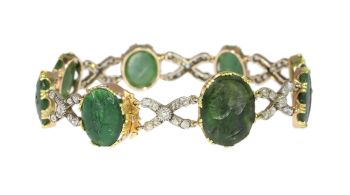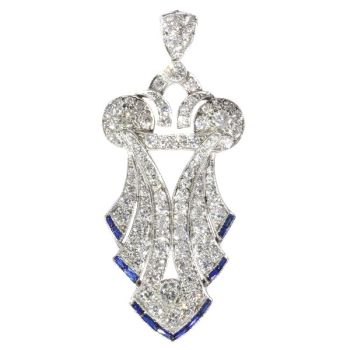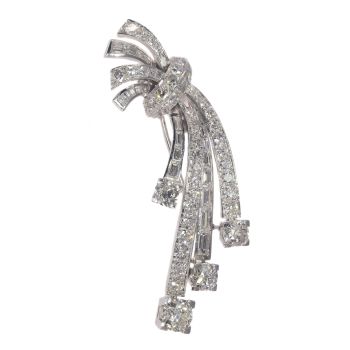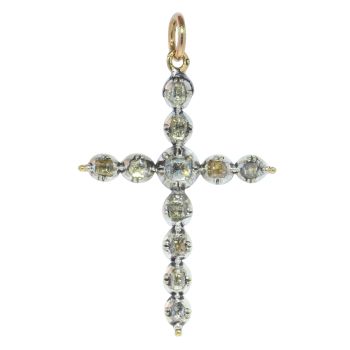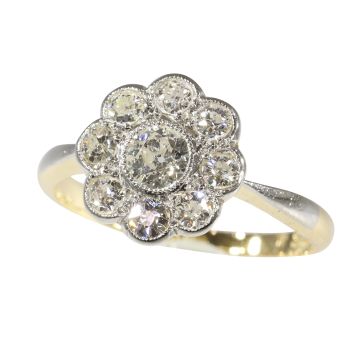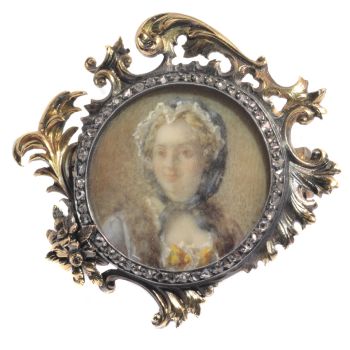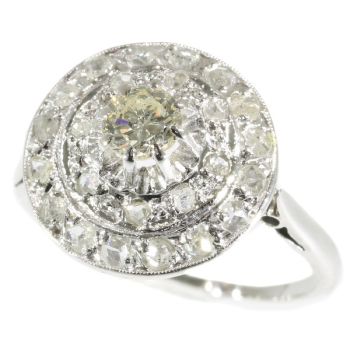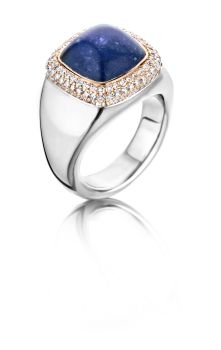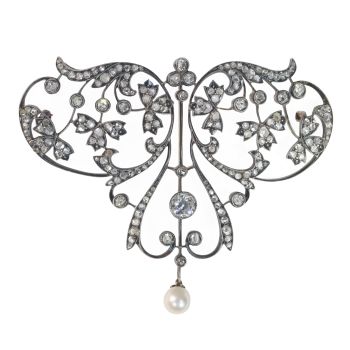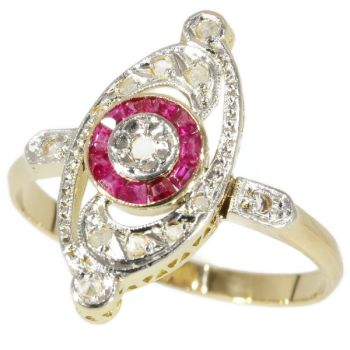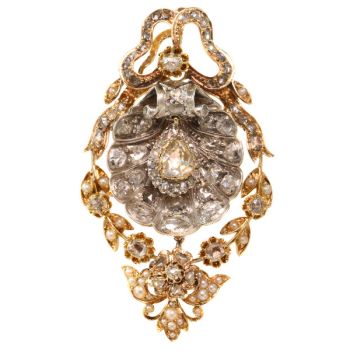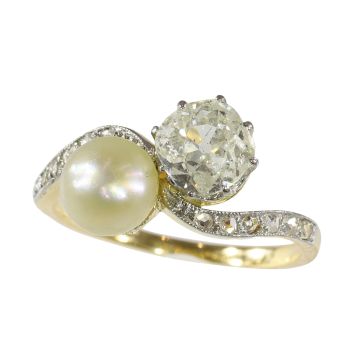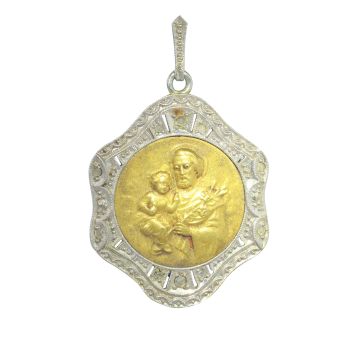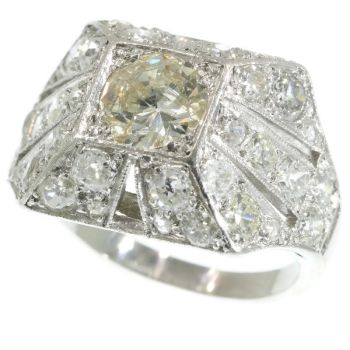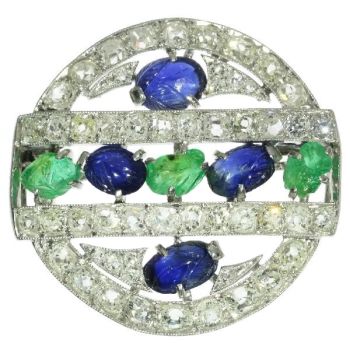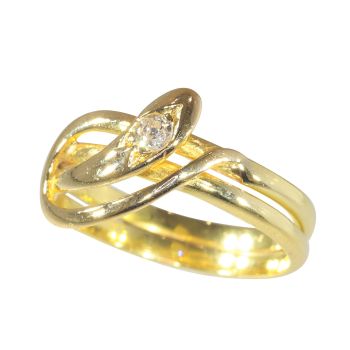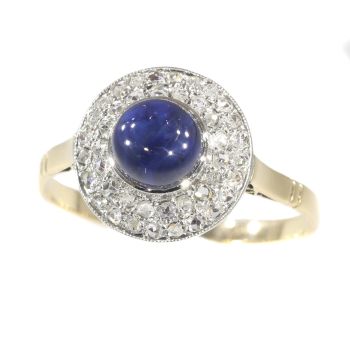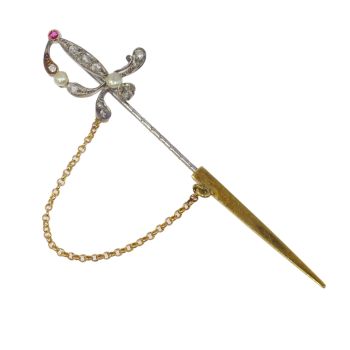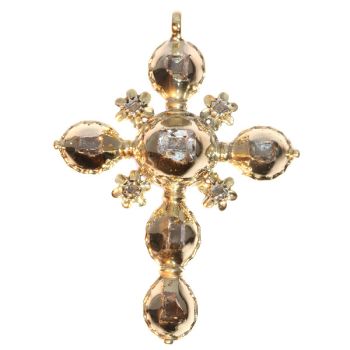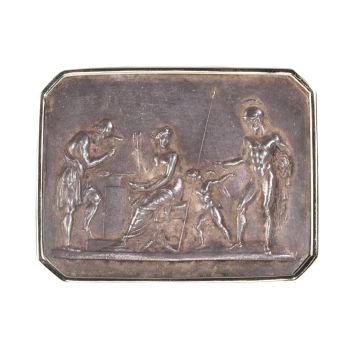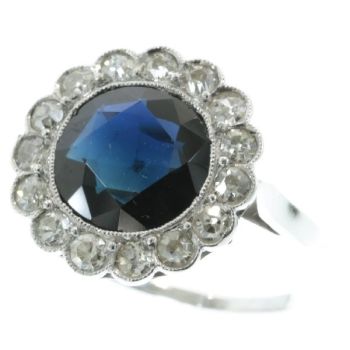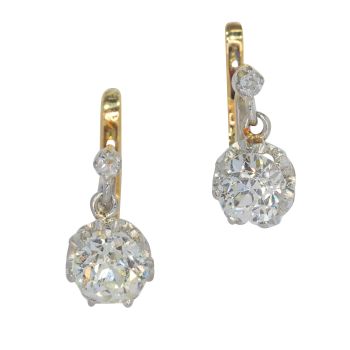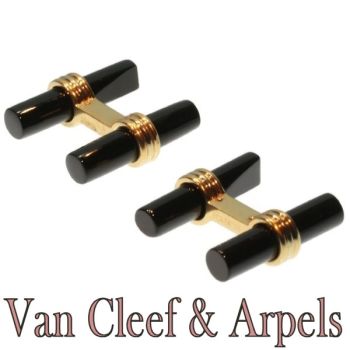Vintage Art Deco large rose cut diamond earstuds 1930
Artiste Inconnu
Adin Fine Antique Jewellery
- Sur l'oeuvre d'art
Antique jewelry object group
earrings studs
Condition
very good condition
more info on our condition scale
Country of origin
unknown
Style
Between Art Deco and Interbellum - Art Deco is an eclectic artistic and design style which had its origins in Paris in the first decades of the 20th century. The style originated in the 1920s and continued to be employed until after World War II. Theterm "art deco" first saw wide use after an exhibition in 1966, referring to the 1925 Exposition Internationale des Arts Décoratifs et Industriels Modernes that was the culmination of high-end style modern in Paris. Led by the best designers inthe decorative arts such as fashion, and interior design, Art Deco affected all areas of design throughout the 1920s and 1930s, including architecture and industrial design, as well as the visual arts such as painting, the graphic arts and film. At thetime, this style was seen as elegant, glamorous, functional and modern. The interwar period (1918–1939) is understood, within recent Western culture, to be the period between the end of the First World War and the beginning of the Second World War. Thisis also called the period between the wars or interbellum.
See also: Art Deco and Interbellum
more info on styles
Style specifics
This is something between Art Deco and the Interbellum.
Abstract motives and geometrical forms are quite typical for the Art Deco period. Art Deco moved away from the soft pastels and organic forms of its style predecessor, Art Nouveau, and embraced influences from many different styles and movements of the early 20th century, including Neoclassical, Constructivism, Cubism, Modernism, and Futurism. Its popularity peaked in Europe during the Roaring Twenties and continued strongly in the United States through the 1930s. Although many design movements havepolitical or philosophical roots or intentions, Art Deco was purely decorative.
The Interbellum is the period between the two World Wars and one can recognize a transition from the Art Deco style to the Retro style.
Period
ca. 1930
Events & facts of this era, poetry of this era, fashion of this era.
Material
18K white gold (touchstone tested)
more info on precious metals
Diamonds
Two rose cut diamonds. We do not have the weight of the diamonds which is normal in our trade when it comes to rose cuts.
All diamonds we offer are screened by the I.J.G.C. for whether they are natural or synthetic, and all diamonds in this jewel are 100% guaranteed to be natural.
Birthstones
Diamond is the birthstone (or month stone) for April.
more info on birthstones
Hallmarks
No trace.
more info on hallmarks
Dimensions
diameter 1,00 cm (0,39 inch)
see picture with a ruler in millimeters and inches
Weight
3,30 gram (2,12 dwt)
Adin Reference Nº
22277-0278
Copyright photography
Adin, fine antique jewellery
Additional information
our latest acquisitions
jewelry glossary
wall of fame
visit us in Antwerp
subscribe to our mailinglist
- Sur l'artiste
Il peut arriver qu'un artiste ou un créateur soit inconnu.
Certaines œuvres ne doivent pas être déterminées par qui elles sont faites ou elles sont faites par (un groupe d') artisans. Les exemples sont des statues de l'Antiquité, des meubles, des miroirs ou des signatures qui ne sont pas claires ou lisibles, mais aussi certaines œuvres ne sont pas signées du tout.
Vous pouvez également trouver la description suivante :
•"Attribué à …." A leur avis probablement une oeuvre de l'artiste, au moins en partie
•« Atelier de …. ou « Atelier de » À leur avis, une œuvre exécutée dans l'atelier ou l'atelier de l'artiste, éventuellement sous sa direction
•« Cercle de… ». A leur avis une oeuvre de la période de l'artiste témoignant de son influence, étroitement associée à l'artiste mais pas forcément son élève
•« Style de … ». ou "Suiveur de ...." Selon eux, une œuvre exécutée dans le style de l'artiste mais pas nécessairement par un élève ; peut être contemporain ou presque contemporain
•« Manière de… ». A leur avis une oeuvre dans le style de l'artiste mais d'une date plus tardive
•"Après …." A leur avis une copie (quelle qu'en soit la date) d'une oeuvre de l'artiste
•« Signé… », « Daté… ». ou « Inscrit » À leur avis, l'œuvre a été signée/datée/inscrite par l'artiste. L'ajout d'un point d'interrogation indique un élément de doute
• "Avec signature ….", "Avec date ….", "Avec inscription …." ou "Porte signature/date/inscription" à leur avis la signature/date/inscription a été ajoutée par quelqu'un d'autre que l'artiste
Êtes-vous intéressé par l'achat de cette oeuvre?
Artwork details
Related artworks
Artiste Inconnu
The bell of the VOC fortress in Jaffna, Sri Lanka1747
Prix sur demandeZebregs & Röell - Fine Art - Antiques
 Sélectionné par
Sélectionné parDanny Bree
1 - 4 / 12Gabriel Argy-Rousseau
Gabriël Argy-Rousseau – Crabes et Algues vase – 19201920 - 1929
Prix sur demandeAntiques Emporium
1 - 4 / 24- 1 - 4 / 24
Artiste Inconnu
Bracelet en diamant du XVIIIe siècle avec intailles vieilles de 2000 ans1790
€ 23.000Adin Fine Antique Jewellery
 Sélectionné par
Sélectionné parDanny Bree
1 - 4 / 24- 1 - 4 / 12

